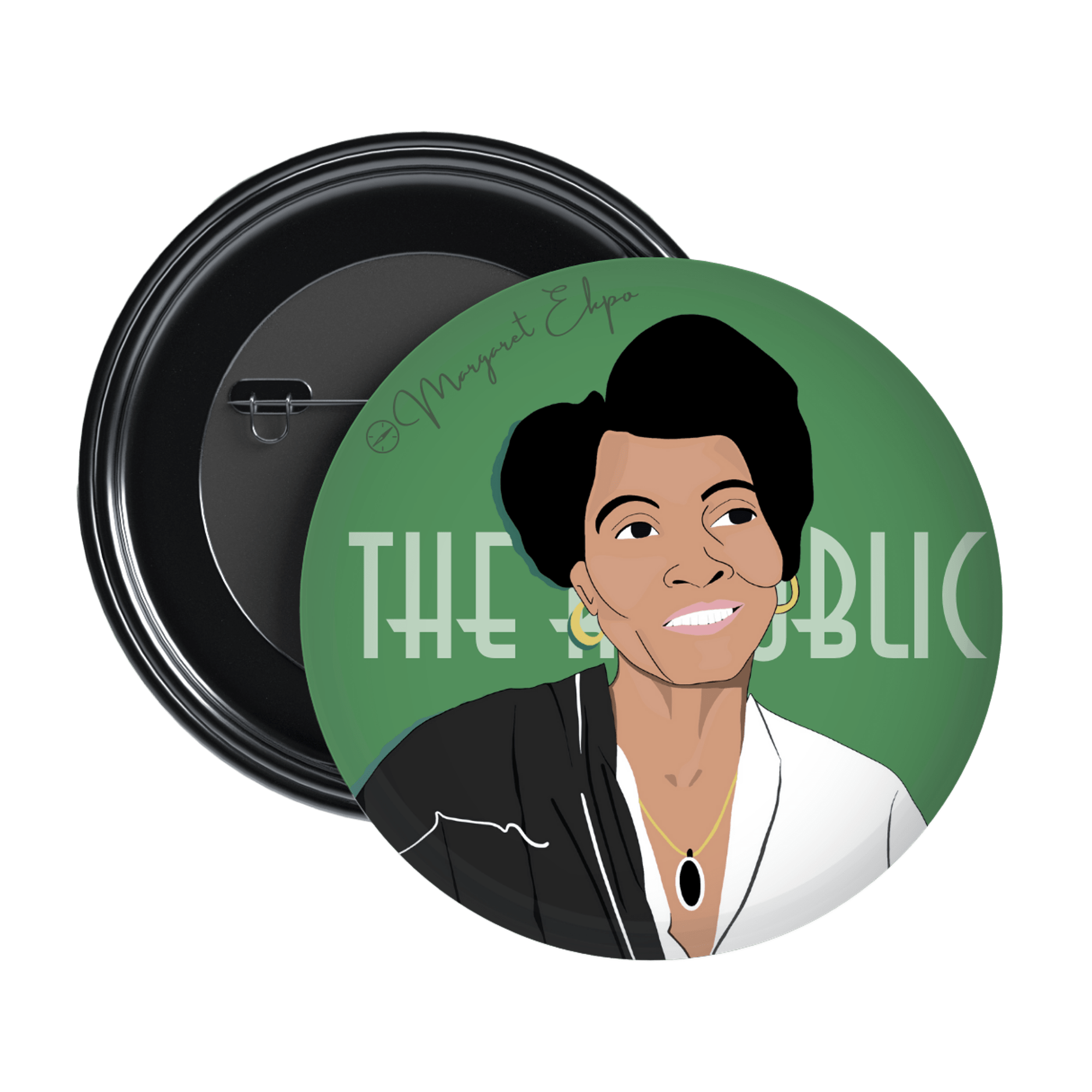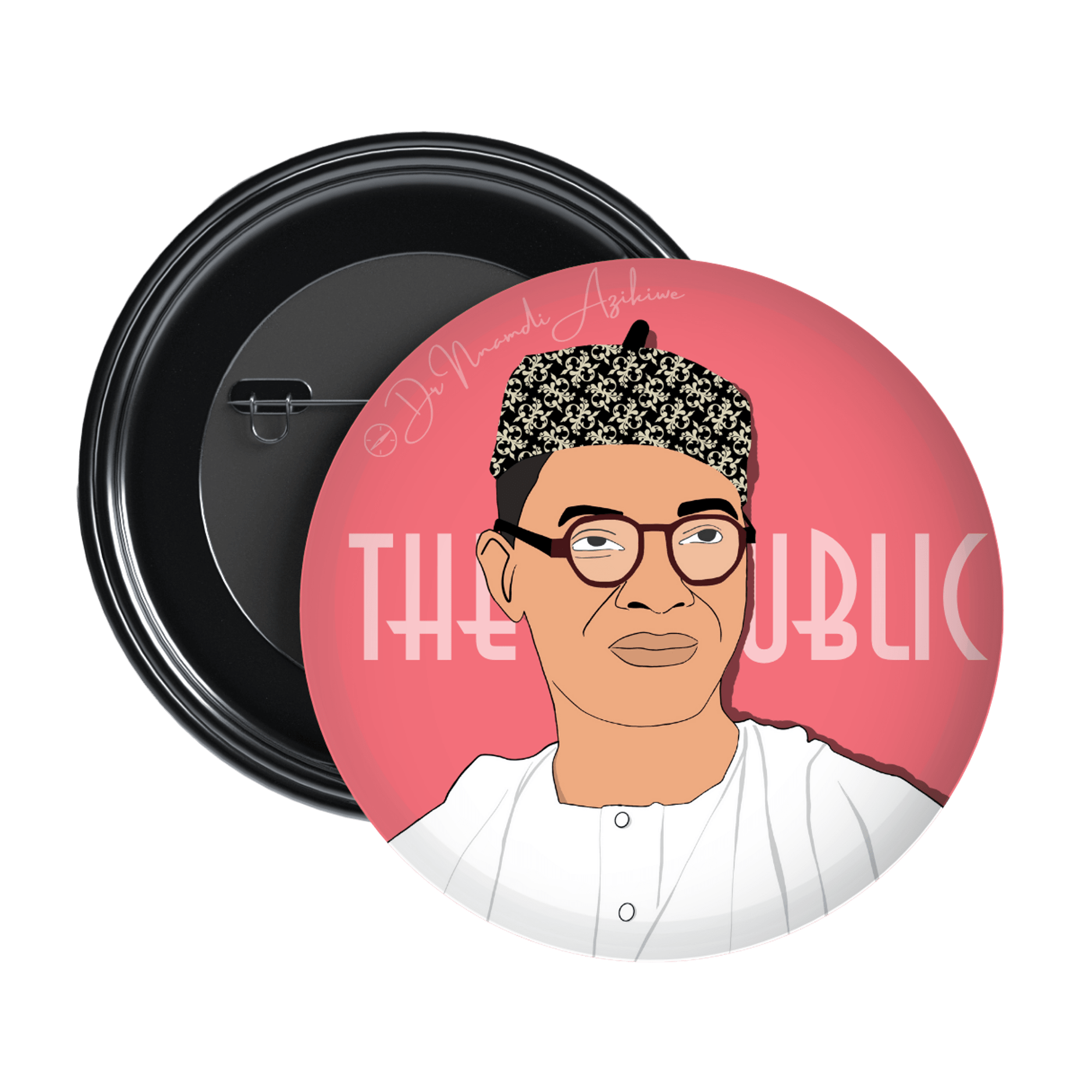
Photo Illustration by Ezinne Osueke / THE REPUBLIC. Source Ref: Ihmafrica / FLICKR.
THE MINISTRY OF CULTURAL AFFAIRS
Rediscovering Nigeria’s Radio Heritage

Photo Illustration by Ezinne Osueke / THE REPUBLIC. Source Ref: Ihmafrica / FLICKR.
THE MINISTRY OF CULTURAL AFFAIRS
Rediscovering Nigeria’s Radio Heritage
Radio dramas have been pivotal in Nigeria, serving as mediums for storytelling, education, and social commentary. Notable productions like Safe Journey, Tree Grows in the Desert, and the BBC’s Story Story transcended linguistic and ethnic boundaries, fostering national dialogue and reinforcing cultural values. However, the preservation of these auditory treasures has been inadequate, leading to the loss of many significant programmes.
Abule Oloke Merin was a prominent radio drama series broadcast in Yoruba and Pidgin English across government-owned radio stations in southwestern Nigeria during the 1990s. Produced by the Society for Family Health, it addressed pressing societal issues such as the HIV/AIDS epidemic, gender inequality, and community resilience through engaging storytelling. Set in the fictional ‘Village of Four Corners’, the show balanced humour and drama to explore challenges like access to healthcare, corruption, and the tension between traditional values and modernity. Despite its cultural significance, Abule Oloke Merin has largely faded from public memory. In the last few months, for instance, all my efforts to locate recordings, scripts, or production materials have been unsuccessful, highlighting a broader systemic neglect of Nigeria’s auditory heritage. I sent emails and direct messages to the social media accounts of various organizations which I assumed should have access to these recordings but received no response. As a researcher, this loss impedes my ability to understand the evolution of Nigerian identity, especially as the country experiences significant diasporic expansion, and the multifarious political fractures that has plagued the country in recent years.
CULTURAL MEMORY AND THE NIGERIAN DIASPORA
In recent years, a record number of Nigerians have emigrated, driven by economic hardship, social instability, and political unrest. These individuals carry their ‘Nigerian identity’ with them, often reshaping it in the context of their new environments. Yet, without a clear understanding of how this identity was historically constructed, tracing its evolution becomes difficult, both within Nigeria and across the diaspora. Radio dramas like Abule Oloke Merin serve as cultural artefacts reflecting the concerns, aspirations and values of their time. For Nigerians abroad like myself and so many others, engaging with such media could offer a sense of continuity and connection to a homeland that may feel increasingly distant. Preserving and making these works accessible would allow members of the diaspora to engage with a shared cultural history, fostering a sense of belonging and understanding across generations and borders.
THE IMPORTANCE OF PRESERVING AUDITORY HERITAGE
Understanding Nigerian identity requires exploring the culture’s interaction with both documented and ephemeral media. Both Nigeria’s pre-colonial and post-colonial histories are steeped in rich oral traditions, complemented by written and broadcast narratives. While documented media, such as literature and film, frequently receive scholarly attention, ephemeral media like radio remain overlooked despite their profound impact on shaping public consciousness. As Brian Larkin, a professor of Anthropology at Columbia University, observes in Signal and Noise (2008), the improvisational nature of Nigerian media production during the 1990s fostered creativity but also rendered these works vulnerable to disappearance. Radio dramas like Abule Oloke Merin are particularly significant because they operate at the intersection of oral and written traditions. They translate traditional storytelling methods into a modern medium, reaching diverse audiences across Nigeria’s linguistic and cultural divides. Through its characters and narratives, Abule Oloke Merin reflected the social tensions of its time—rural versus urban life, tradition versus modernity, and individual versus collective identity. This duality makes radio a unique lens for studying Nigerian identity, capturing both the dynamism of a rapidly modernizing society and the enduring influence of traditional values.
Additionally, radio dramas provided a platform for national integration by fostering dialogue across Nigeria’s many ethnic and linguistic groups. Programmes like Abule Oloke Merin, which incorporated Yoruba, Hausa, Igbo, and Pidgin English, created a shared cultural space where audiences could engage with stories that resonated with their lived experiences. By analysing these productions, scholars can gain deeper insights into how Nigerian identity was negotiated and constructed in the face of colonial legacies, socio-economic challenges, and the pressures of globalization. The systemic neglect of Nigeria’s auditory heritage underscores the urgency of rethinking archival practices. The absence of materials such as recordings, scripts, and production notes are not just a loss for researchers—it is a cultural failure that restricts our ability to understand and appreciate the forces that have shaped Nigerian identity.
shop the republic
LESSONS FROM OTHER AFRICAN NATIONS
Nigeria is not alone in grappling with the challenges of preserving ephemeral media. Other nations offer valuable lessons on how to approach this issue. South Africa, for instance, has undertaken extensive efforts to digitize and preserve its apartheid-era radio programmes, recognizing their significance as historical and cultural artefacts. The South African Broadcasting Corporation (SABC) has worked with academic institutions and cultural organizations to restore and archive these recordings, ensuring that they remain accessible for future generations. By leveraging government funding and international partnerships, South Africa has built digital repositories that protect these invaluable resources while making them available to researchers and the public. Similarly, Ghana’s National Archives has integrated oral histories into its broader archival practices, preserving the voices and stories that might otherwise have been lost. The Ghanaian government, in collaboration with universities and cultural heritage organizations, has implemented structured oral history projects that document narratives from elders, community leaders, and artists. This initiative highlights the potential of combining grassroots efforts with institutional support to safeguard a nation’s auditory heritage. For Nigeria to implement similar initiatives successfully, it must address these challenges head-on. Establishing sustainable funding models—whether through government allocations, private sector partnerships, or international grants—would be crucial in ensuring long-term viability. Additionally, developing a centralized digital archive, supported by universities and cultural institutions, could create a structured approach to preservation. However, Nigeria also faces its own unique structural limitations, including inadequate infrastructure, inconsistent policy enforcement, and a lack of awareness about the importance of media preservation. If these foundational issues are not tackled, even the most well-intended preservation efforts may falter. Thus, while looking to South Africa and Ghana provides valuable insight, Nigeria must tailor its approach by prioritizing infrastructural development, policy continuity, and community-driven initiatives to ensure the feasibility and success of its archival endeavours.
shop the republic
-
‘Make the World Burn Again’ by Edel Rodriguez by Edel Rodriguez
₦70,000.00 – ₦75,000.00 This product has multiple variants. The options may be chosen on the product page -
‘Nigerian Theatre’ Print by Shalom Ojo
₦150,000.00 -
‘Natural Synthesis’ Print by Diana Ejaita
₦70,000.00 – ₦75,000.00 This product has multiple variants. The options may be chosen on the product page -
‘Homecoming’ Print by Shalom Ojo
₦70,000.00 – ₦75,000.00 This product has multiple variants. The options may be chosen on the product page
shop the republic
THE FUTURE OF NIGERIA’S RADIO HERITAGE
As Nigeria continues to evolve in both its post-colonial state and its nascent democracy, understanding its identity requires revisiting the media that shaped its past. Programmes like Abule Oloke Merin offer a window into the societal dynamics of their time, providing valuable context for contemporary challenges. By preserving and studying these works, we can gain insights into the cultural forces that continue to shape Nigeria’s trajectory. In a globalized world, where migration and diaspora communities play an increasingly prominent role, the preservation of cultural heritage takes on new urgency. For diasporic Nigerians, engaging with archival materials like radio dramas could help bridge the gap between past and present, fostering a deeper connection to their roots. For scholars and policymakers, these materials offer critical tools for understanding the complexities of Nigerian identity and the ways in which it is negotiated across different contexts. The story of Abule Oloke Merin is a reminder of the power of radio to shape collective memory and foster public dialogue. While its recordings may be lost, its impact lives in the memories of those who listened. By addressing the systemic gaps in Nigeria’s media preservation practices, we can honour this legacy and ensure that future generations inherit the rich cultural stories that define us.
The absence of archival materials for Abule Oloke Merin and similar radio dramas is a loss that extends far beyond the academic realm. It represents a gap in Nigeria’s collective memory, a failure to preserve narratives that have shaped the nation’s identity. Yet, this absence also presents an opportunity—a chance to rethink how we approach the preservation of ephemeral media and to develop innovative strategies for safeguarding Nigeria’s auditory heritage. By embracing digitization, community engagement, and institutional reform, Nigeria can ensure that the voices and stories of its past are not lost to history. Programmes like Abule Oloke Merin are not just artefacts of a bygone era—they are vital pieces of Nigeria’s cultural puzzle, offering insights into who we are and where we are headed. In preserving these narratives, we honour the past, engage with the present, and lay the groundwork for a more inclusive and informed future⎈
BUY THE MAGAZINE AND/OR THE COVER
-
‘Natural Synthesis’ Print by Diana Ejaita
₦70,000.00 – ₦75,000.00 This product has multiple variants. The options may be chosen on the product page -
The Republic V9, N1 Demas Nwoko's Natural Synthesis And The Rise of African Architecture
₦30,000.00
















